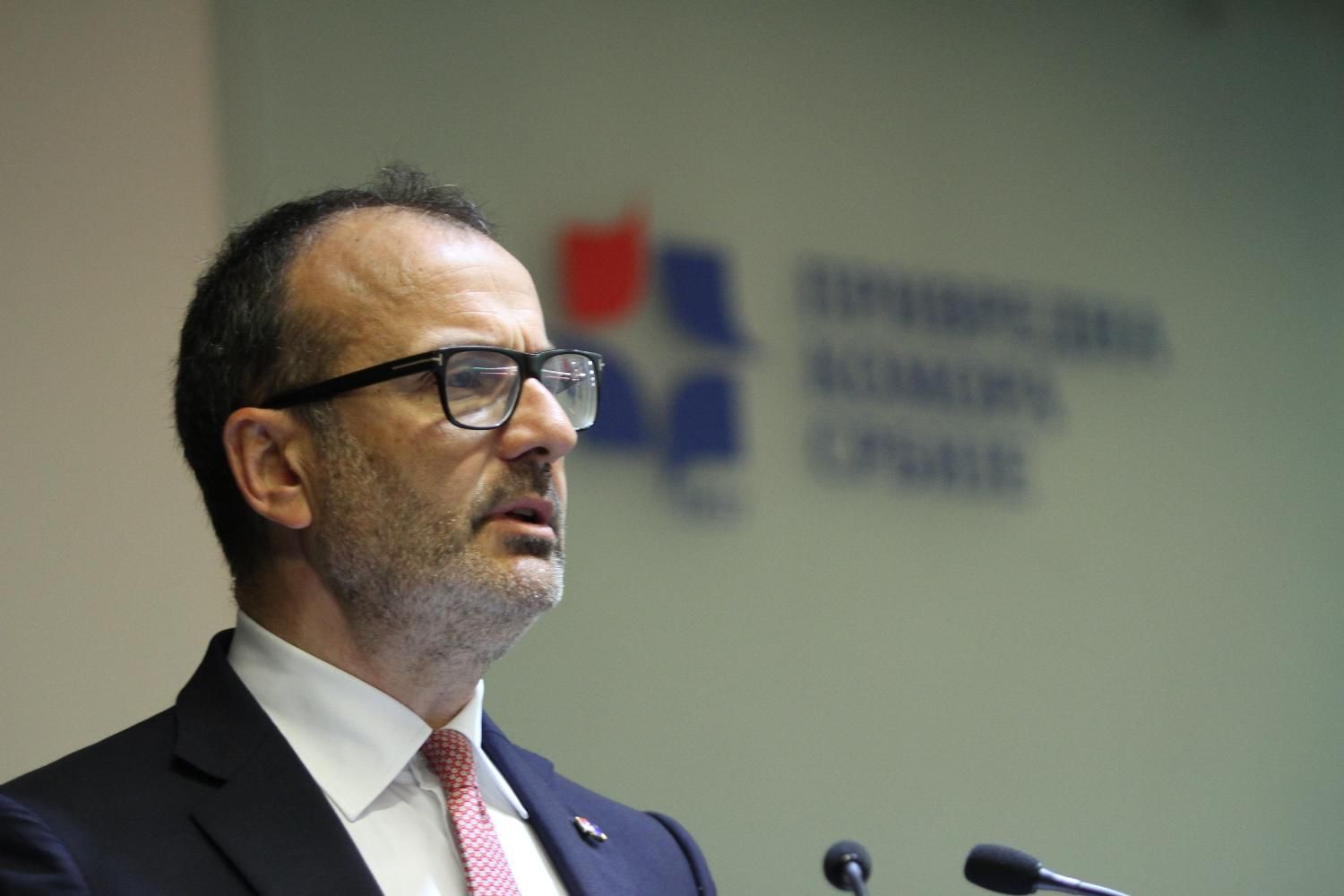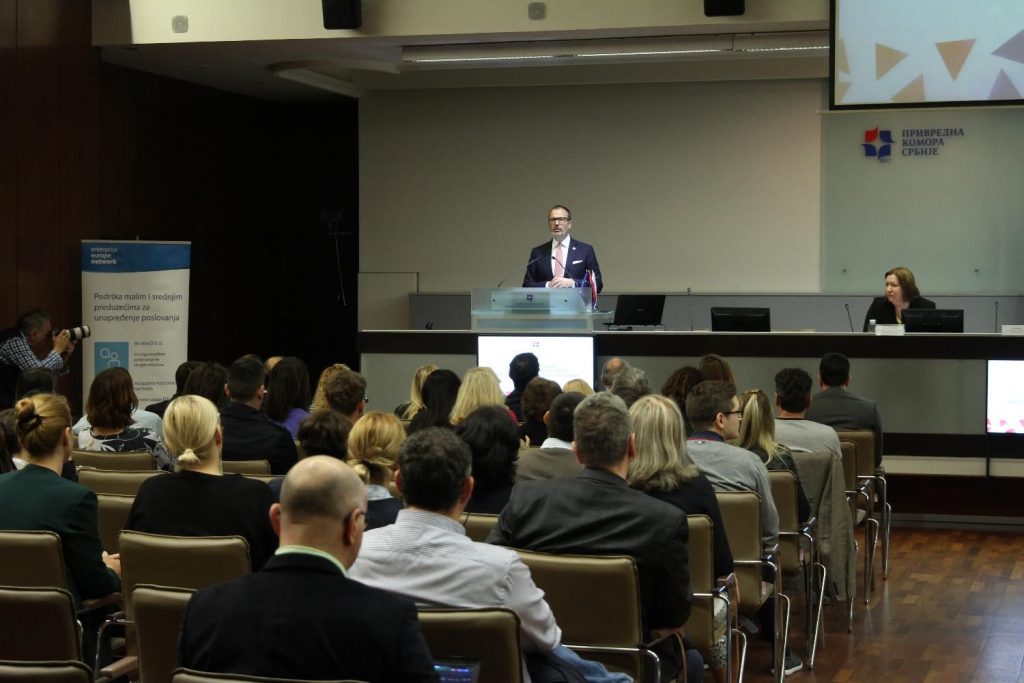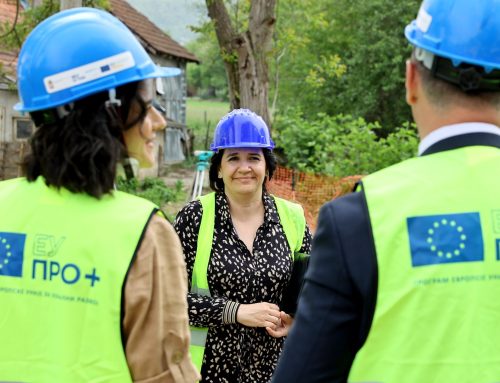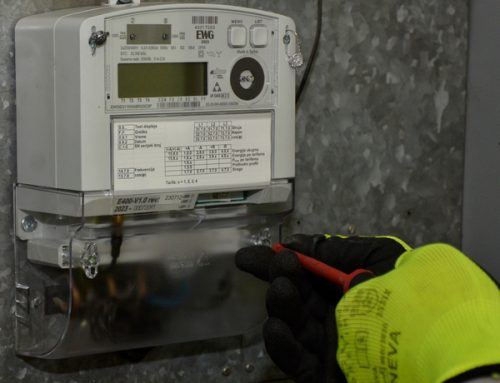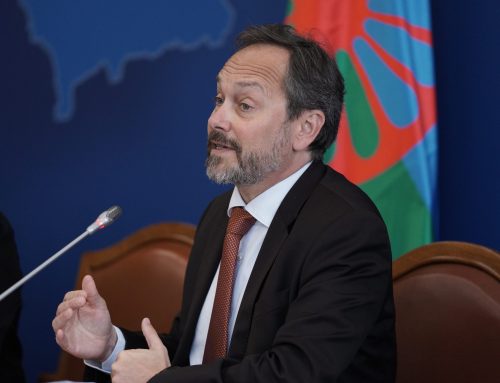Head of the EU Delegation to Serbia Sem Fabrizi presented the European Commission’s Report on Serbia at the Serbian Chamber of Commerce, noting that the most dramatic progress was observed in the part dealing with economic criteria.
Fabrizi said that Serbia had achieved good economic results, producing budgetary surplus and decreasing the level of non-performing loans. He added, however, that the economic growth rate during the reporting period was below 2 per cent, stressing that it should be higher.
According to him, good foundations have been laid for stronger and faster growth in 2018 and beyond.
Serbia has increased exports and foreign direct investment and improved its business environment, Fabrizi said, noting that the country needs to follow through with public administration and tax authority reform as well as to shrink informal economy.
“Public procurement and competitiveness are among the issues that need tackling,” Fabrizi said and added that one might describe the situation as “the glass half full.”
The Report is out, now it should be used as a tool for necessary reform, Fabrizi said, stressing that Serbian economic system was “anchored” in the EU.
Serbia is implementing reforms for its own benefit, in order to become a modern market economy and democracy in its full capacity, he added.
Being part of the EU means being part of common legislation, values, interests; it means upholding democracy, human rights, media freedom. When it comes to economic criteria, Serbia should become a functional market economy able to cope with competitive pressure in the single 500 million-consumer market, Fabrizi noted.
Speaking about political criteria, Fabrizi said that it is crucial for Serbia to set up independent and efficient judiciary.
Serbia has made its judiciary more efficient, there is some progress in that area, but there is no progress when it comes to judiciary’s independence from political influence, he said.
“Fight against corruption and organised crime is important for the business community,” he said, adding that unless the adopted laws are enforced, they will remain “a dead letter.”
The Report notes no progress in media freedom, he said, adding that the document also dealt with regional cooperation, foreign policy and Kosovo dialogue.
Fabrizi described EC’s recommendation to open negotiations with Macedonia and Albania as a positive sign.
In May, 15 years following the Thessaloniki Summit, Fabrizi said, an EU-Western Balkans Summit will be held in Sofia.

